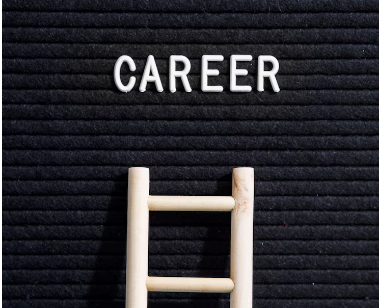
Introduction
Personal and career development is defined as the lifelong process of acquiring knowledge, skills, and experiences towards attaining of personal and professional goals. In the modern world, which has all its wave-making associated events taking place with great speed, personal and professional development has acquired immense significance towards achieving success and fulfillment. This paper identifies and explains the need for personal and professional development, outlines the strategies and modalities for effective growth, and projects the trends that will shape the development of these subjects in the future.
The Need for Personal Development
Personal development is the continuous process of self-improvement in the various areas of one’s life, focusing on emotional, intellectual, and social growth. It is the setting up of goals, the development of skills, and the building of habits that will help a person create a better life.
- Self-Awareness:
Personal development begins with self-awareness—the ability to understand one’s strengths, weaknesses, values, and motivations. Self-awareness enables one to make informed decisions, set realizable goals, and align actions with core values. - Emotional Intelligence:
Emotional intelligence, which is the ability to recognize and manage one’s emotions and that of others, is an important aspect of personal development. High emotional intelligence improves communication, fosters healthy relationships, and enhances problem-solving. - Lifelong Learning:
Personal growth must be based on a lifelong commitment to learning. Acquiring knowledge and skills throughout life keeps one adaptable, innovative, and best prepared for today’s challenges. - Resilience:
Developing one’s resilience—the ability to bounce back from setbacks and adversity—is important in personal development. The resilient are able to handle stress better, maintain a positive attitude, and continue striving toward objectives despite obstacles. - Balance in Work-Life:
A fit work-life balance is critical to any individual’s well-being. Proper personal development involves managing one’s time and energy in such a way that he perfectly balances his personal, professional, and recreational pursuits.
Why Career Development is Important
Career development is the process used by individuals to manage their professional growth, career path, and total career trajectory. It deals with gaining experiences, developing skills, and strategically making decisions needed to achieve career goals.
- Career Planning:
Effective career development is a result of proper career planning. One has to set short-term and long-term career goals, while understanding the alternatives available in career options and developing a plan to achieve these set goals. Career planning provides focus and meaning to an individual, keeping the person focused and motivated. - Skill Development:
Up-skilling is a very important aspect of career growth. Technical skills are those acquired for the specific relevant profession, while soft skills include communication, leadership, and teaming skills, amongst others. This enables one to stay updated on trends within a given industry and with changes in technology in relation to being competitive in the job market. - Networking:
One of the key ingredients in career development is constructing and maintaining a professional network. It means a way for mentorship, collaboration, and getting a career opportunity. The ability to expand the network will be probable through participation in industry conferences, membership in professional organizations, and use of social media platforms. - Career Transitions:
Career development is the process of successfully moving from one career to another, from one job to another within the same industry, and lastly, from one industry to another. Flexibility, strategic thinking, and readiness to learn new things are needed in handling transitions effectively. It is because people embrace and view transitions as windows of opportunity for growth that they open up new and enriching experiences. - Work Experience:
Gaining different work experience, especially internships, volunteer work, and part-time jobs, are very instrumental in career development. These offer not only insightful experiences but also professional contacts and acquisition of employability skills. Various experiences also help in identifying interests, strengths, and areas of improvement.
Strategies for Effective Personal and Career Development
Effective personal and career development needs a deliberate plan, commitment, and harnessing of several strategies that enhance growth toward the realization of the set goals.
- Setting SMART Goals:
Setting SMART—Specific, Measurable, Achievable, Relevant, and Time-bound—goals is the main tool in the process of personal and career development. SMART goals bring clarity, direction, and motivation and make it easier to follow up on progress toward the wanted outcome. - Seek Feedback:
Personal and professional development depends to a great extent on feedback sought by an individual from mentors, peers, and supervisors. This aids an individual through constructive responses in knowing his strengths, areas for improvement, hence refining his skills and strategy. - Personal Development Plan Creation
Personal development planning contains the specification of goals to be achieved, actions required to be taken, and timelines within which these objectives developed at both personal and professional fronts have to be achieved. It is more of a roadmap that guides people on the course of development and makes people focus and be accountable for their actions. - Embracing Lifelong Learning:
Personal and professional growth comes from the seeking of new knowledge and acquiring new skills. These can be attained through formal education, online courses, and workshops, reading, and following up on trends in your industry. It keeps a person adaptable and competitive. - The Ability to Take Care of Yourself
Perhaps the most important aspect of a healthy lifestyle is to take good care of oneself. This encompasses regular exercise, healthy eating, getting enough sleep, and stress management techniques. Good self-care boosts both mental and physical health, which goes a long way in performing at the best levels. - Creating a Support Network:
A good surrounding is essential for personal and career growth: family, friends, mentors, and colleagues. Therefore, it provides the person with a powerful support system that offers encouragement, advice, and assistance during bad times, building resilience and motivation.
Future Trends in Personal and Career Development
The landscape of personal and career development keeps on changing, as a result of technological advancement, changes in work environments, and shifts in society. Here are some significant trends shaping the future of personal and career development:
- Digital Learning:
The learning digital transformation has rather taken a different turn with the rising digital learning platforms; be it MOOCs, e-learning websites, or mobile apps, all helping people learn and acquire various skills digitally. Digital learning is characterized by flexibility, accessibility to a large number of courses, and learning at one’s convenience. - Remote Work and the Gig Economy:
With the growth of remote work and gig economy, traditional career paths are getting irrelevant. The empowered person now has more freedom to work flexibly—to have more than one career, able to balance personal and professional life. The ability to adjust to remote work and develop digital literacy is gaining greater importance. - Soft Skills are Critical:
While technical skills are still relevant, there is an increase in the focus on soft skills, which involve emotional intelligence, creativity, critical thinking, and adaptability. These skills are celebrated by employers because they assist people in working well together, creating new ideas, and communicating properly. - Personal Branding:
Personal branding refers to the process of creating an individual professional identity and reputation. A wide variety of social media and online platforms brought the chance to unfold abilities, successes, and areas of expertise before the global audience. Having built a formidable personal brand does increase career opportunities and professional credibility for any employee. - Lifelong Career Development:
The concept of a lifelong career is fast fading; most people switch jobs, industry, and often careers during a lifetime. Continuous career development and flexibility are critical to navigating changes and winning in the long-run career race. - Wellness and Work-Life Integration:
Wellness and work-life integration are growing in prominence, as distinct from work-life balance. Organizations are more sincerely recognizing the worth of their workers’ well-being, and therefore, many of these initiatives support mental health, flexible work arrangements, and development in its holistic sense.
Conclusion
Personal and career development are interactive continuous processes that require effort, strategic planning, and dedication to growth. Investment in personal growth enhances self-awareness, raising your emotional quotient for a fuller and more balanced life. On the other hand, setting goals, acquiring skills, and navigation through transitions all relate to career development for professional success.
This means setting SMART goals, seeking feedback, engaging in lifelong learning, practicing self-care, and building a support system. In this way, with the constantly changing nature of work and life, a person will always have the capacity for flexibility and sharpness of vision toward new opportunities.
Digital learning, remote work, soft skills, personal branding, lifelong career development, wellness—these are some of the future trends that are going to continue sculpting people’s approach toward personal and career growth. Keeping oneself well-informed and proactive will make the whole difference in using these trends toward the aim of having a successful and fulfilling personal and professional life.
Ultimately, personal and career growth is a journey of dedication, resilience, and readiness to learn and grow. Through personal and professional development, many people can reach their goals, live up to their potential, and experience lives that are purposeful and full of fulfillment.
